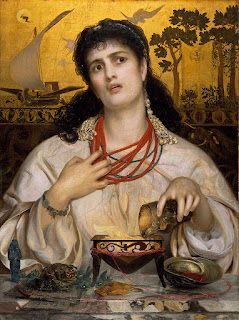Humpty dumpty sate on a wall,
Humpti dumpti had a great fall;
Threescore men and threescore more,
Cannot place Humpty dumpty as he was before.
(1810)
I have always maintained that the most important aspects of learning are
entirely useless. Utility ought not be the measuring stick for why we learn
these things - instead it should be love.
I was interested whilst teaching about the Scholastic Debate to reflect
on the
original structure of the Liberal Arts and find that there is a
logical connection between the Debate and the structure. The original LA did
not include the mechanical arts, law, business, or carpentry, but it also did
not include history, poetry, literature, or art. These were the later products,
perhaps, of the LA, but the Liberal Arts were two sets;
-
the Trivium
-
the Quadrivium
The Trivium was HOW to learn. The Quadrivium was WHAT to learn (as in the most
important things the mind could focus on). Trivium consisted of three
disciplines
Which taught the methods that could be applied to any form of learning.
Grammar was not just ABCs, but rather was understanding the inner language of
whatever discipline one entered, be it math, law, history, carpentry, plumbing.
Logic included formal logic, yes, but was also learning the connections between
the principles of the discipline; how does A relate to B? how does B connect
with C? how do all three work together?
Rhetoric trained in how to read, write and speak - but more to the point -
trained how to express oneself in the language of the discipline and make
comprehensible (and attractive) to others that language.

When I first read about this in my early 20s (in Classical
Rhetoric for the Modern Student by Corbett) it made sense to me, but for
years I could not fathom why on earth (or heaven) the Medievals organized the
Quadrivium in the way they did? Why not have history as a thing to be studied?
Why not poetry? Why not Calculus?
When reading Josef Pieper's "Scholasticism"
the other day it dawned on me why this structure was considered the more
important aspect of the Liberal Arts.
Pieper points out that the Quadrivium consisted of
-
Arithmetic
-
Geometry
-
Astronomy
-
Music
This is primarily a Platonic organization based on the
Divided Line (Eikasia, Pistis, Dianoia, Noesis) as outlined in The
Republic & is the mind's ascent to be able to perceive the LOGOS
(i.e. the pattern of the mind of God).

So essentially what the Medievals were saying was the greatest thing for the
soul to consider was this mathematical pattern upon which all the world was
based. Studying it led to the ability to use it (Architecturally, in music, in
government, in sculpture, in poetry and prose) and also gave growth and
enrichment to the soul BUT the main reason for studying it was for its own
sake; a thing of beauty to be known and loved.
The Realists and Nominalists, then, were debating about the efficacy of this
sort of education. The Realists held that there was something real existing in
another world to which the mind could ascend through study and contemplation.
Nominalists held that the thing to be known and loved didn't really exist
outside of this world but was a perspective or viewpoint to be gained about the
world which allowed men to live well (a utilitarian stance). As long as the two
viewpoints were in debate or discussion with each other there was a healthy
confidence and output to the society of the Medieval world. When that debate
broke down (afterd Tempier's condemnations in 1277) and when the world was
shaken by a series of upheavals in the 14th century, Europe devolved (as Pieper
noted) into the two camps of rational atheism and irrational belief. And that
was the beginning (and end) of the Modern World as noted by Guardini.
Humpty Dumpty (the golden egg of mystical religious thought) had been broken
and not all the king's horses nor all the king's men
could
put Humpty Dumpty back together again.






